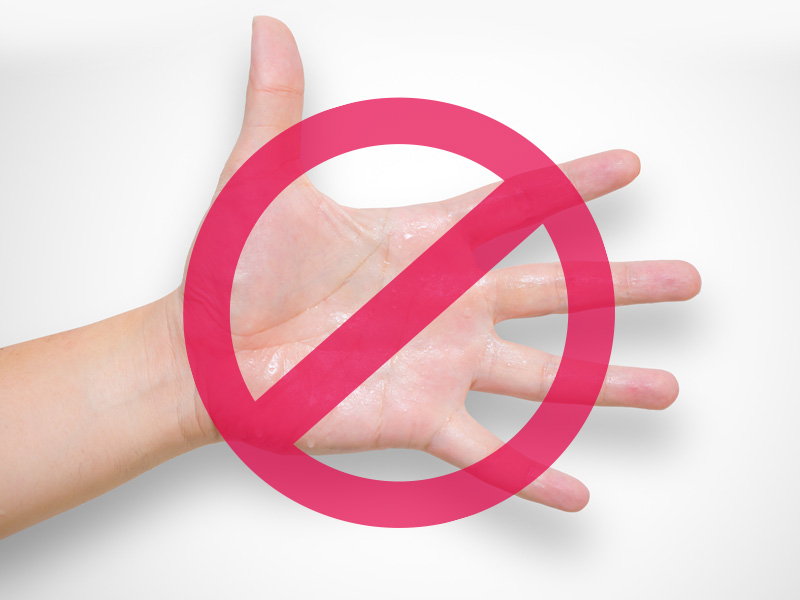Efficient Dermatology Solutions for Excessive Sweating: How to Stop Sweaty Hands and Feet
Comprehending the Origin of Excessive Sweating and Its Influence On Day-to-day Live
Excessive sweating, likewise recognized as hyperhidrosis, is a condition that affects a considerable section of the population, yet its underlying causes and ramifications on day-to-day functioning remain somewhat enigmatic. While it is frequently recognized as a physiological reaction to control body temperature level, the triggers for too much sweating can differ widely among individuals, including not just physical variables yet also emotional and psychological aspects. The impact of this condition expands past plain pain, usually affecting social communications and total high quality of life. By diving into the origin of hyperhidrosis and exploring its complex results, a much deeper understanding of this prevalent problem can be acquired, clarifying the complexities that people facing too much sweating navigate daily.
Physiology of Sweat Glands
The regulation of sweat manufacturing, an important physiological procedure, is primarily regulated by the activity of gland distributed throughout the human body. Gland are categorized into 2 primary kinds: eccrine and apocrine glands. Eccrine glands are the most numerous and are discovered in mostly all locations of the body. They play an essential function in thermoregulation by producing a watery fluid onto the skin's surface area, which helps and vaporizes cool the body down. On the other hand, apocrine glands are focused in areas abundant in hair follicles, such as the armpits and groin, and their secretions are thicker and milklike in appearance.
When the body temperature increases, either as a result of exercise, high temperature levels, or emotional tension, the worried system triggers the sweat glands to generate sweat. This sweat is made up primarily of water and electrolytes like salt and chloride. The procedure of sweat manufacturing is important for preserving the body's inner temperature within a narrow, ideal variety, highlighting the critical role sweat glands play in human physiology.
Triggers for Excessive Sweating
In recognizing the origin causes of excessive sweating, it is important to recognize the triggers that can bring about this physiological response. Excessive sweating, likewise called hyperhidrosis, can be triggered by numerous variables, both ecological and physical. One usual trigger is psychological stress and anxiety or anxiety, which can stimulate the body's sweat glands to produce even more sweat than is necessary for cooling down. Physical physical effort, heats, and spicy foods are additionally recognized to trigger excessive sweating in people vulnerable to this problem. Specific medical conditions like menopause, hyperthyroidism, or diabetes can add to extreme sweating as well.
Additionally, drugs such as some antidepressants, opioids, and specific supplements can also work as triggers for hyperhidrosis. Comprehending these triggers is important in managing too much sweating efficiently - Exessive Sweating. By determining and dealing with the details triggers that trigger too much sweating in a private, healthcare providers can establish personalized therapy strategies to relieve this problem and improve the person's lifestyle
Medical Issue Associated
Connected with excessive sweating are different medical problems that can exacerbate this physical feedback. One common condition is hyperhidrosis, a disorder identified by extraordinarily enhanced sweating that exceeds the body's thermoregulatory requirements. This can materialize in focal areas like the palms, soles, underarms, or face, impacting a person's lifestyle because of social shame and discomfort.
Additionally, endocrine conditions such as hyperthyroidism, diabetes mellitus, and menopausal warm flashes can additionally bring about excessive sweating. Hyperthyroidism causes an overproduction of thyroid hormonal agents, accelerating metabolism and triggering sweating. Diabetes can induce sweating episodes, particularly throughout hypoglycemic episodes when blood sugar level degrees go down as well low. Menopausal hot flashes, attributed to hormonal fluctuations throughout menopause, can create extreme and unexpected sweating, typically gone along with by flushing and heart palpitations.
Moreover, infections like endocarditis, hiv, and tuberculosis have been connected with night sweats, a common signs and symptom understood to disrupt rest and impact overall health. These medical conditions highlight the varied series of underlying factors that can add to excessive sweating, demanding detailed examination and management by medical care experts.
Emotional and Emotional Variables

Influence On Social Communications
Excessive sweating can have profound results on an individual's capacity to engage pleasantly in social interactions. The noticeable signs of sweat spots or damp patches on apparel can lead to humiliation and self-consciousness, causing individuals to take out from social situations. This withdrawal can affect partnerships, limit social activities, and prevent specialist and personal growth.

Additionally, the anxiousness and self-worth issues stemming from extreme sweating can impact interaction and view publisher site social abilities. People might struggle to concentrate on conversations, participate in group activities, or reveal themselves confidently. This can cause sensations of seclusion and solitude, as social links end up being testing to preserve.
Final Thought

While it is typically recognized as a physical action to manage body temperature level, the triggers for excessive sweating can vary widely amongst people, including not only physical factors yet psychological and also psychological aspects. By delving right into the root causes of hyperhidrosis and discovering its diverse effects, a much Continued deeper understanding of this pervasive issue can be obtained, dropping light on the complexities that people grappling more info here with extreme sweating browse on an everyday basis.
Physical exertion, high temperature levels, and spicy foods are likewise known to cause extreme sweating in people susceptible to this problem. By determining and dealing with the details triggers that trigger excessive sweating in a private, healthcare providers can establish personalized therapy plans to ease this condition and enhance the person's high quality of life.
Too much sweating can have profound results on an individual's capability to engage easily in social communications.